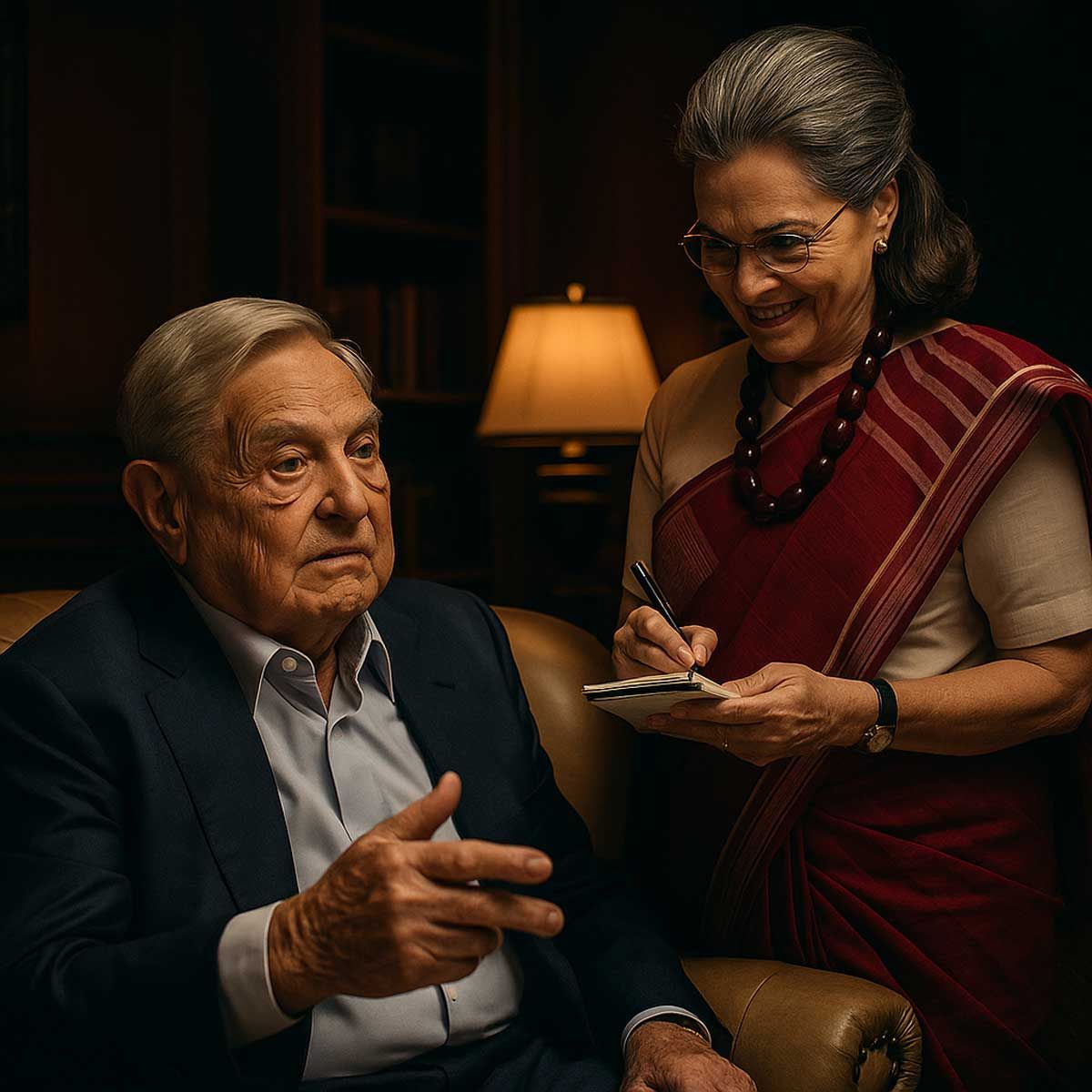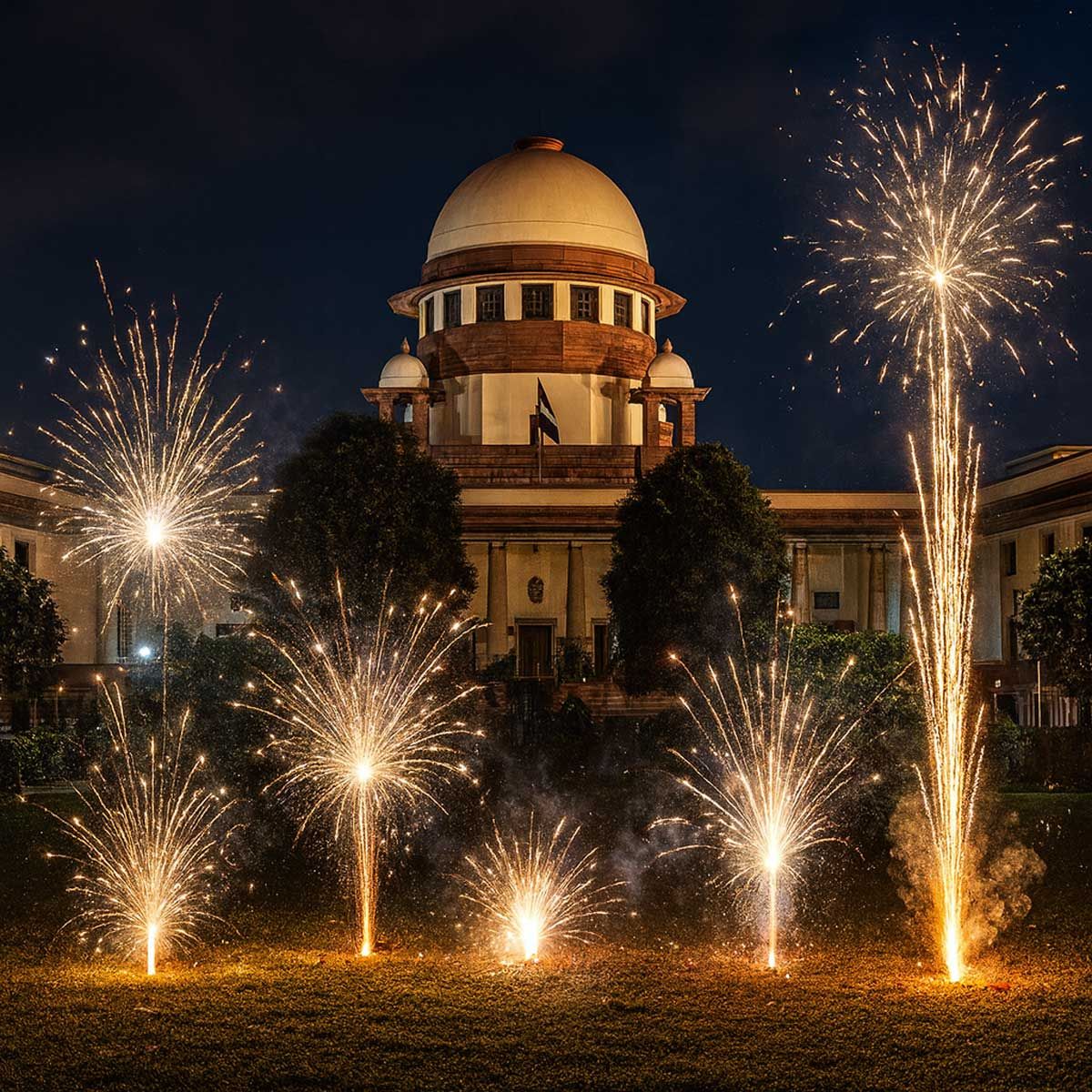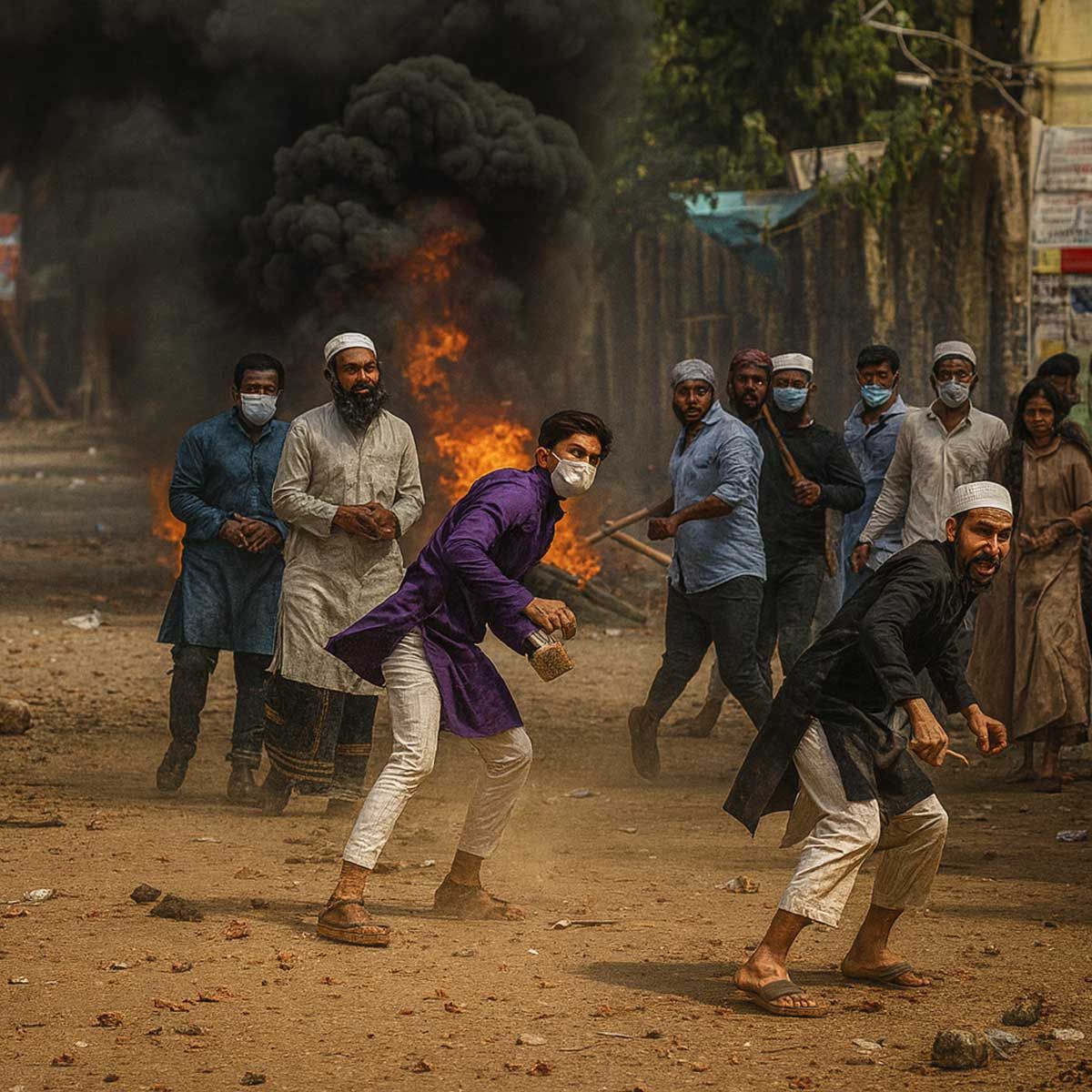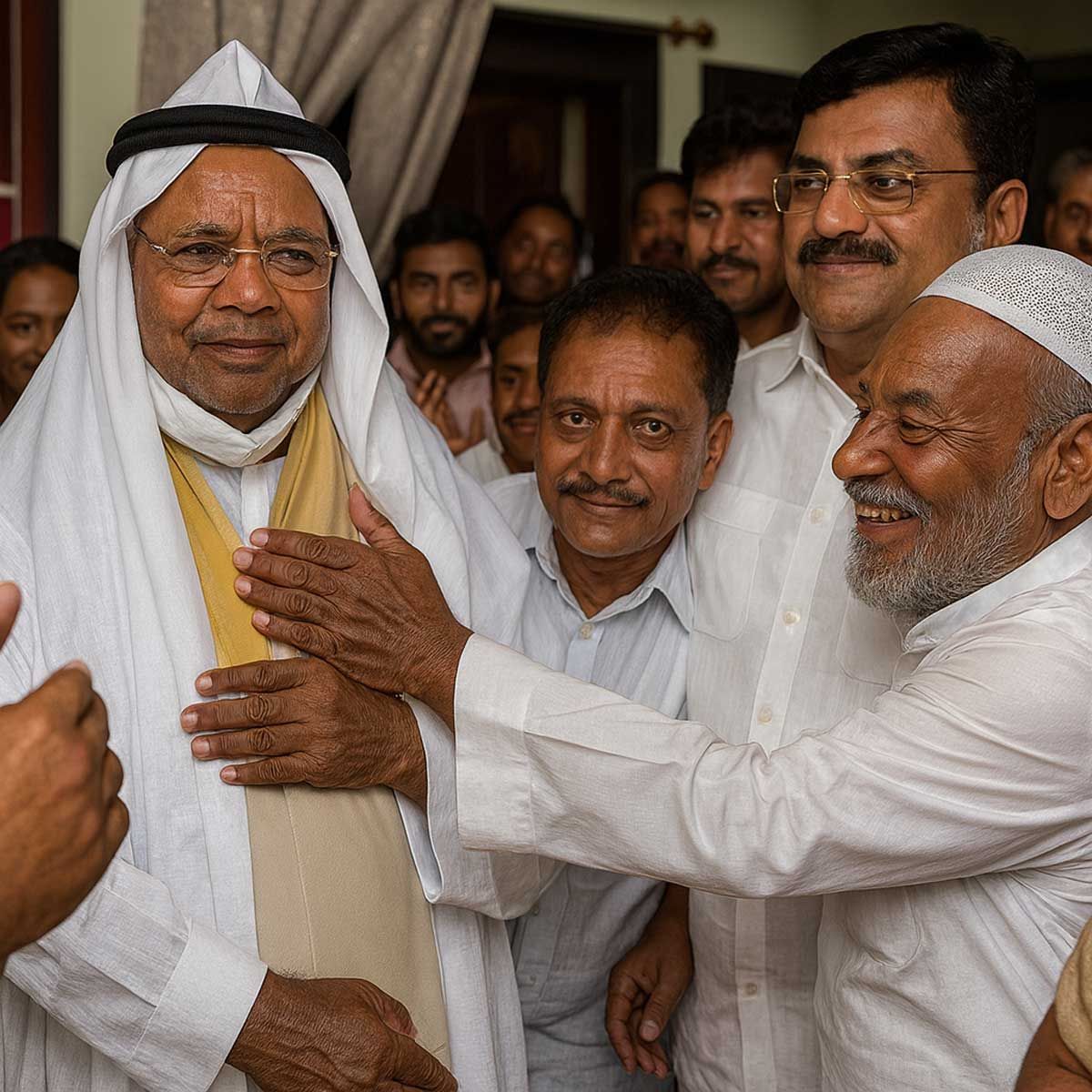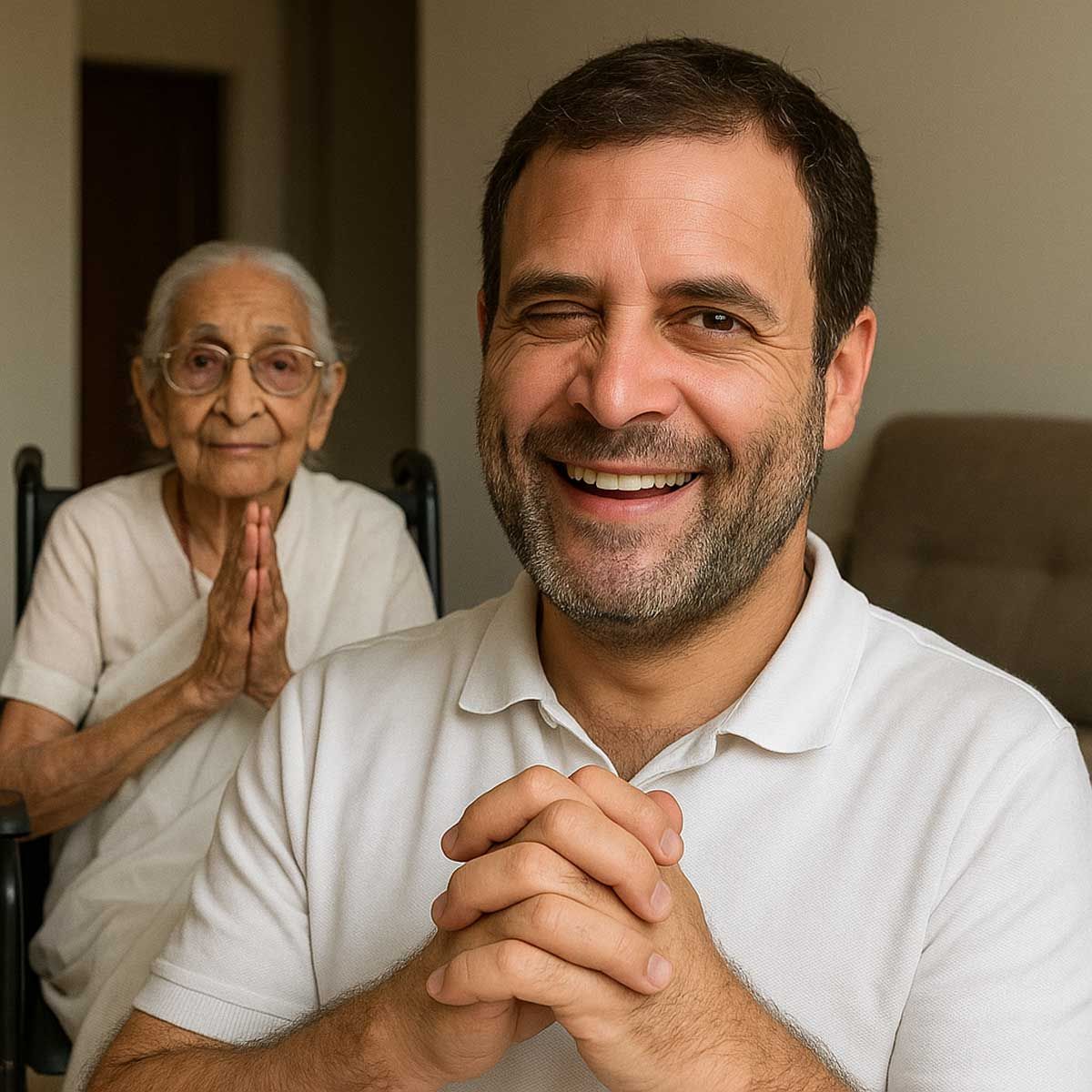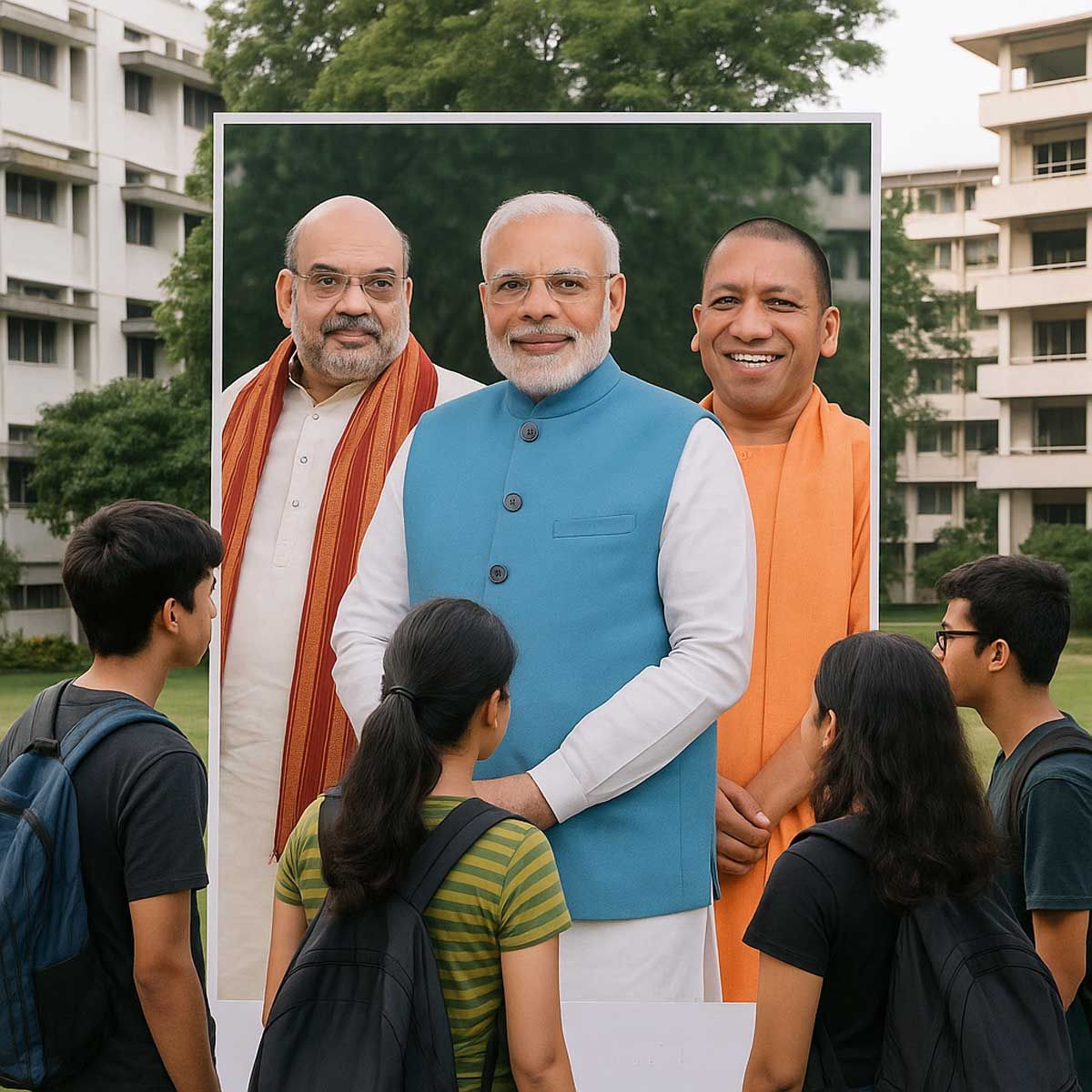More Coverage
Twitter Coverage
Satyaagrah
Written on
Satyaagrah
Written on
Satyaagrah
Written on
Satyaagrah
Written on
Satyaagrah
Written on
JOIN SATYAAGRAH SOCIAL MEDIA
Milords, why demand to stand above criticism when democracy thrives on questioning, for Justice B Sudershan Reddy’s Salwa Judum verdict shows even judges must face accountability, no matter how powerful their robes once were
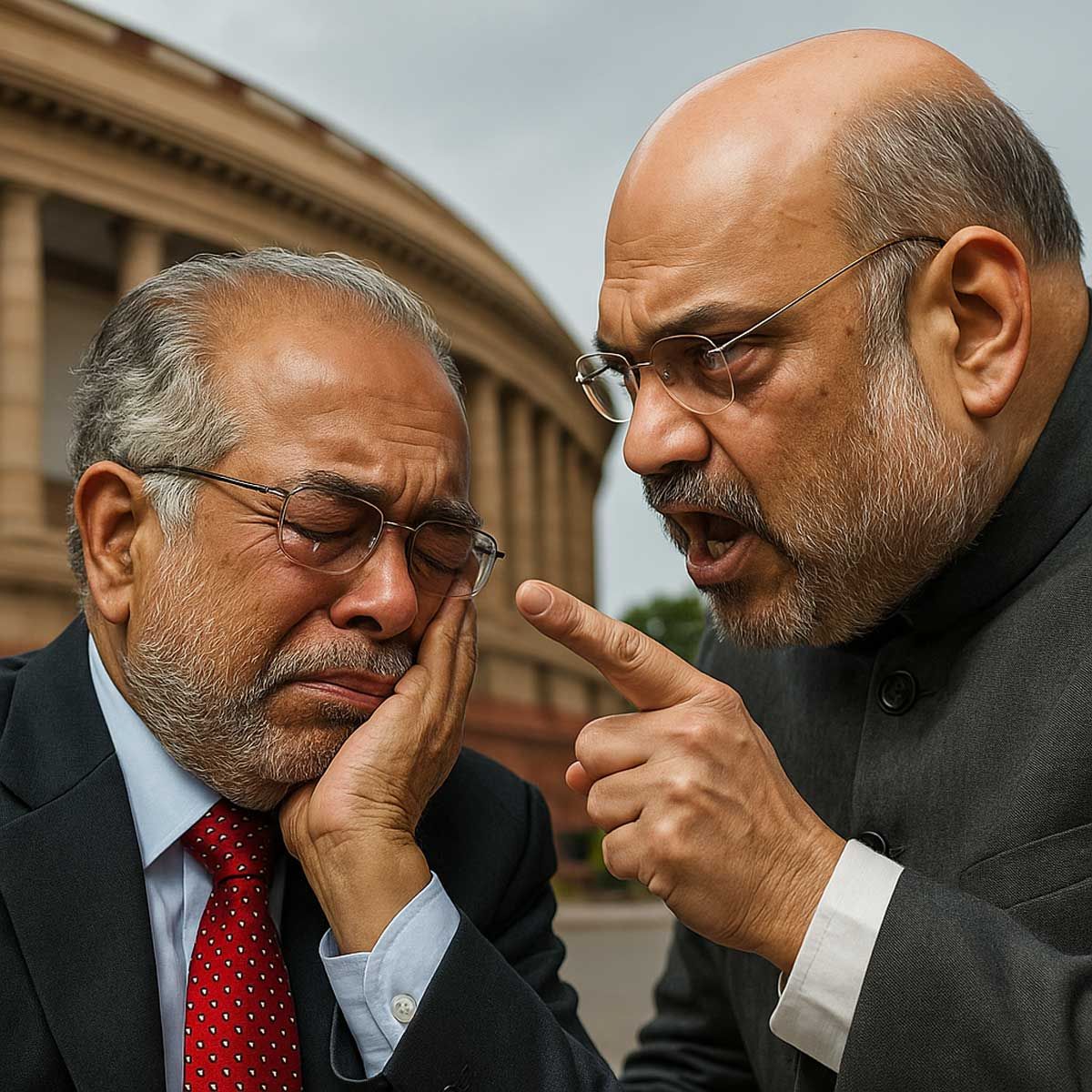
On 26th August, a group of retired judges issued a strongly worded response that has reignited the debate on judicial accountability. Their intervention came after some sitting judges and activists defended former Justice B. Sudershan Reddy from political criticism. The retired judges, however, plainly stated that judicial independence was not under threat from Amit Shah’s remarks.
Justice Reddy, who is now contesting as the Vice President candidate of the Opposition alliance, became the flashpoint of this controversy. The retired judges reminded their colleagues of a fundamental democratic principle: when a judge chooses to leave the bench and step into the electoral arena, he becomes “fair game for criticism.” Politics, by its nature, invites scrutiny. No candidate can be insulated from their past decisions, and former judges are no exception.
This counter-letter exposes the larger issue: why do some judges want to remain beyond criticism in a democracy? In a system where every public figure—be it a minister, bureaucrat, or journalist—is subjected to intense questioning, is it reasonable for judges turned politicians to demand immunity? Should citizens be silenced when they question the electoral ambitions of those whose past rulings changed the course of national security? Or should democracy thrive precisely on such criticism?
The intervention by retired judges underlines that criticism of judicial figures, once they enter politics, is not an attack on judicial independence but a rightful exercise of democratic freedom.
|
Amit Shah’s Attack: Linking Justice Reddy to the Salwa Judum Verdict
On 22nd August, Union Home Minister Amit Shah delivered a blunt political message at the Manorama News Conclave in Kochi, Kerala. Without hesitation, he accused the Congress party of succumbing to Leftist pressure by selecting Justice B. Sudershan Reddy as its Vice Presidential candidate.
Amit Shah connected this decision directly to Justice Reddy’s judicial past, specifically his role in disbanding the anti-Maoist civilian force in Chhattisgarh. He recalled the controversial 2011 Supreme Court judgment where Justices Reddy and SS Nijjar struck down the policy of arming tribal youth to fight Maoists.
In Shah’s own words: “The opposition (Congress) vice presidential candidate Sudarshan Reddy is the same person who gave the Salwa Judum judgment in support of leftist extremism and Naxalism. If this had not been done, extremism would have been eradicated by 2020.”
He reminded the people of Kerala that their own state had suffered from the sting of Naxalism and extremist violence. By fielding Justice Reddy, Shah argued, Congress had exposed its ideological tilt under Leftist influence.
This was not a generic rant against the judiciary. It was a calculated political critique against a rival candidate, targeting his record. In any healthy democracy, questioning a candidate’s track record is not just normal—it is necessary. The question that follows is: should Justice Reddy, now a politician, be shielded from such scrutiny? Or does he, like every other candidate, have to answer for his past actions?
|
The 2011 Salwa Judum Verdict: A Turning Point in the Naxal Debate
To understand the storm over Amit Shah’s remarks, it is necessary to revisit the Salwa Judum judgment of 2011. A Supreme Court bench led by Justices Reddy and Nijjar struck down the Chhattisgarh government’s decision to arm tribal youth as Special Police Officers (SPOs) to fight Maoists.
The case was brought forward through a petition filed by Nandini Sundar and other Left-leaning activists. The Court not only ordered the disbanding of the Salwa Judum, but also directed the state to recall all firearms and ensure that the youth involved were protected from Maoist reprisals.
The judgment went further. It ordered the state to investigate allegations of human rights abuses and other crimes committed by members of Salwa Judum or the Koya Commandos. The Court declared that no group could be permitted to operate outside the boundaries of the Constitution.
The bench observed: “The effectiveness of the force cannot be the sole criterion to judge whether it is constitutionally permissible.” It stressed that even if the SPOs were somewhat successful in tackling Maoists, the “dubious gains” had come at the unacceptable cost of constitutional violations and social instability.
For the state and the Centre, this was a major setback. Salwa Judum, despite criticism, had been one of the few active counter-strategies against Maoists in their strongholds. By disbanding it, the Court arguably left security forces vulnerable. This is why Amit Shah later argued that, had the judiciary not intervened, the war against Naxalism might have been over by 2020.
But here lies the dilemma: when judges step into the electoral field, are their past judgments immune to political debate? Can they campaign without accountability for decisions that altered the security landscape of the country? Or should voters be reminded of those decisions before casting their ballot? These are the democratic questions that the controversy has forced into the open.
When “Eminent” Judges Defend the Verdict
Just two days after Amit Shah’s statement, on 24th August, a set of retired judges and activists responded sharply. They sent a letter accusing Shah of “publicly misinterpreting” the Salwa Judum judgment, insisting that the verdict never supported Naxalism. They also urged that campaigns for high office should be conducted with dignity and without questioning ideology.
The signatories included well‑known former judges from India’s top courts — Madan Lokur, J. Chelameswar, Kurian Joseph, Abhay Oka, and A.K. Patnaik — along with former High Court judges and activists like Sanjay Hegde and Mohan Gopal. Their tone bordered on the pompous: how dare a political figure reinterpret a judicial verdict? They warned that Shah’s comments could create a “chilling effect” on the independence of the judiciary. In essence, they demanded immunity from critique, even though one of their own has entered the often messy world of politics.
|
Judges Who See Through the Act Push Back
But the defence didn’t go unchallenged. A larger group of retired judges, clearly unimpressed by that tone, issued a counter‑statement. They called out the pattern of some former judges using the guise of "judicial independence" to cloak political leanings.
They reminded everyone that once Justice Reddy decided to contest the Vice‑President’s election, he entered politics and must defend his record like any other candidate. They insisted that criticism of a political candidate — even if formerly a judge — isn’t an attack on judicial independence. The real harm, they argued, comes when retired judges repeatedly issue partisan political statements, creating the impression that the judiciary itself aligned with one political side.
One line cut straight to the heart: because of a few, the entire body of judges ends up painted as partisan. That, they emphasized, is harmful both for the judiciary and for democracy.
Criticism of Judges Is Not Contempt
Here’s the core issue: retired or sitting judges are not gods—they are human beings whose decisions affect millions. When a verdict changes the course of national security or civil liberties, it will draw public attention and debate. That is the essence of democracy.
Yet in India, there seems to be a silent belief among some judges that any criticism of their rulings is an attack on the Constitution itself. That is deeply anti-democratic. If ministers, bureau chiefs, generals, and journalists are open to public scrutiny, why should judges—especially those who enter politics—be exceptions?
Free speech doesn’t have a courtroom boundary. Democracy requires that judgments with far-reaching impact be discussed openly. Amit Shah’s remarks, while politically charged, were a legitimate commentary on how a past judicial ruling shaped the fight against Maoist insurgency.
Labeling such critique as “misinterpretation” or claiming it creates a “chilling effect” is like demanding a monopoly on interpretation—as if only the judiciary can explain its own words. It becomes especially hypocritical when retired judges sign statements that echo a single political bloc, yet turn around and decry criticism as partisan. That double standard is transparent to the public.
Democracy Means Accountability for All
This controversy isn’t just about Amit Shah and Justice Reddy. It raises a broader question: what is the role of the judiciary in a political democracy? Once judges step into the political field, they must accept that their records will be examined. Their judgments—especially those that shaped national security—will be scrutinized, their ideologies questioned. That’s not an assault on judicial independence, but rather a necessity of democratic accountability.
The judiciary deserves respect—but only so long as it remains above partisan politics. When retired judges act like political players, they lose the moral high ground to demand protection from criticism. Democracy demands that no institution or individual be beyond question.
So, to those who cry foul at any critique: a simple reminder — you are not gods, you are not above questioning, and this is not how a democracy works.
 Support Us
Support Us
Satyagraha was born from the heart of our land, with an undying aim to unveil the true essence of Bharat. It seeks to illuminate the hidden tales of our valiant freedom fighters and the rich chronicles that haven't yet sung their complete melody in the mainstream.
While platforms like NDTV and 'The Wire' effortlessly garner funds under the banner of safeguarding democracy, we at Satyagraha walk a different path. Our strength and resonance come from you. In this journey to weave a stronger Bharat, every little contribution amplifies our voice. Let's come together, contribute as you can, and champion the true spirit of our nation.
 |  |  |
| ICICI Bank of Satyaagrah | Razorpay Bank of Satyaagrah | PayPal Bank of Satyaagrah - For International Payments |
If all above doesn't work, then try the LINK below:
Please share the article on other platforms
DISCLAIMER: The author is solely responsible for the views expressed in this article. The author carries the responsibility for citing and/or licensing of images utilized within the text. The website also frequently uses non-commercial images for representational purposes only in line with the article. We are not responsible for the authenticity of such images. If some images have a copyright issue, we request the person/entity to contact us at This email address is being protected from spambots. You need JavaScript enabled to view it. and we will take the necessary actions to resolve the issue.
Related Articles
- "गजवा-ए-हिंद": Supreme Court grants bail to Jalaluddin Khan, detained under UAPA for planning an Islamic rule in India by 2047, ironically highlighting in the judicial realm, 'Bail is the rule, jail is the exception,' even in cases of national conspiracy
- "Chutiyaram": Delhi’s Trade Marks Registry shockingly approved ‘CHUTIYARAM’ for Sadhna Goswami’s namkeen and biscuits, but later on withdrawing it after two weeks, admitting Balaji’s epic fail let a crude mark dodge Section 9(2)(c), sparking a hearing
- Husband submitted that his wife living separately for 10 years, she implicated false 498-A IPC, in which he was acquitted, and prayed for divorce on ground of mental cruelty: Court concurred disputes not serious
- "लताड़": Madras HC slams Tamil Nadu police for FIR errors in Anna University assault case, orders ₹25 lakh compensation, women-led SIT probe, victim’s fee waiver, action on FIR leak, and police lapses, ensuring privacy, dignity, and justice for the victim
- Minimum age of women for marriage is raised to 21 years: Union Cabinet clears proposal
- "वक्र तुंड महाकाय, सूर्य कोटि समप्रभ:, निर्विघ्नं कुरु मे देव शुभ कार्येषु सर्वदा": Karnataka HC countered nefarious agendas of Islamo-leftist lobby and upheld decision of allowing Ganesh Chaturthi celebrations at Hubballi Idgah maidan, गणपति बप्पा मोरया
- Calcutta High Court's landmark judgment illuminates the secular essence of Durga Puja, reinforcing citizens' constitutional rights and India's unity in diversity, a celebration beyond religion, it embodies vibrant spirit of communal harmony & tradition
- "Blur lines between religious tradition and property law, a riveting legal drama indeed": Supreme Court rejects appeal in Salem Muslim Burial Ground Protection Committee v. State of Tamil Nadu, "Mere notification not enough to declare wakf property"
- ‘Come on, one must not be so narrow-minded’: Supreme Court dismisses plea demanding a total ban on Pakistani artists in India, says... to be a patriot, one must not be hostile to foreigners, also lauds GoI for Cricket World Cup with Pakistan participation
- “A bench of Justices chosen through collegium got to choose to decide who has the better lawyer”: Karnataka government supports High Court verdict upholding marital rape charges against husband which is another stark violation of human rights
- "A benefit is estimated according to the mind of the giver": Supreme Court rewarded series of privileges to retired CJIs, most notable are entitlement to domestic help, chauffeur and secretarial assistant for life, commencing from their date of retirement
- No evidence to tie Dinesh Yadav to violence, intention assumed based on him being Hindu: Anti-Hindu riots by Muslim community that shook the capital city of India and analysis of the conviction
- Tehelka News | In a ground-breaking verdict, the Delhi High Court slapped Tehelka, Tarun Tejpal, Aniruddha Bahal, Mathew Samuel with an order to pay ₹2 crore to Major General MS Ahluwalia following a 2001 sting operation that defamed the ex-Army officer
- "Honest conviction is my courage; the Constitution is my guide": VP Jagdeep Dhankar took exception to Courts quashing changes made by parliament to the Constitution, says "Nowhere in the world Constitutional provisions are undone by courts like in India"
- Gender Biased Indian Law: Delhi High Court observed that in India, expenditure borne by brother in supporting his divorced sister must be taken into account while passing an order of maintenance in favour of his wife
















